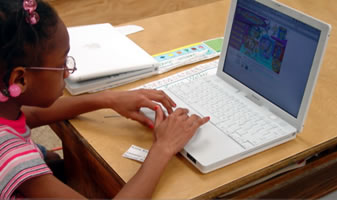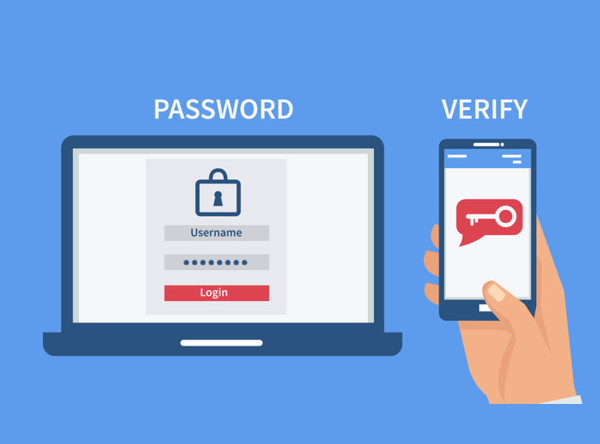The whispers to eventually phase out textbooks for electronic books have made their way into Dalton McGuinty’s office. The Ontario Premier publicly confirmed that downsizing on paper usage in the classrooms, and transitioning over to digital media, was on the horizons but would “take time.”
The call to immediately switch-over is premature, McGuinty argued, as the sophistication of technology is outpacing their adoption in everyday family life. Pointing to this impediment, McGuinty was shooting down speculation that there would be a swift integration of digital media technologies into the current curriculum. Whatever direction education takes, it will affect BYOD.
Roll-Out the E-Books Already
However, proponents on the other side of the spectrum are saying that a full technology shift and change-over can’t come quick enough for Toronto classrooms. Fully transplanting the classroom into the digital realm will mean that teaching limitations of the past will be shed, and students will be provided with greater high-tech learning tools. Furthermore, pointing to the fact that since multimedia devices – from portable smartphones to tablets – are making headways into our daily lives, why shouldn’t the youth be given a head-start and familiarized with digital media at a young age?
The Toronto District School Board, in the past, has strongly flirted with the idea of slowly phasing out textbooks in favor of electronic learning devices. Converting to a paperless environment will slash about two-thirds of the current Board’s expenditures that are allocated to textbooks; reduce the environmental footprint of a public institution; and increase the learning resources for students. Furthermore, because there is currently a shortage of textbooks in public schools, which means that many have to share as a result, lag behind their peers.
Tablets are Trending
The recent splash of popular digital media gizmos, like the iPad, has only reenergized and rejuvenated those who are pressing for a technological overhaul in Toronto’s schools. Multimedia devices like the iPad offer a series of advantages that traditional textbooks do not: like offering high-resolution images, applications that will aid high-tech learning, giving students instant access to a sea of resources, and free up storage space for schools.

These advantages and their demand have not gone unnoticed by Apple’s rivals, such as BlackBerry. Strong vibes are coming out of the BlackBerry camp that they will soon unveil their own slate-style device, codenamed the BerryPad or Cobalt, to cut into the lucrative tablet market. This mushrooming market will continue on its path of innovation, and the high-tech learning-friendly features on the multimedia devices will make them even more conducive for the classrooms.
Following California’s Footsteps
This transformation to technology-based learning has already been gained a foothold in California. Governor Arnold Schwarzenegger introduced a plan that would allow public schools in the Golden State to stop their purchase of textbooks, and develop open-source digital textbooks which can be downloaded for free. By investing in the future of education, California has seen some significant strides on many fronts, in particular, accommodating a tech-savvy generation, minimizing educational costs in the cash-strapped state and empowering students with greater learning tools.
What to Expect? Toronto Should be a Trailblazer
As a provider of managed IT services in Toronto, we are firmly affixed to the notion that the future lies in technology and are advocates in championing a swift transition to more technology-based learning tools for students. As more technology heavyweights, like Microsoft and BlackBerry, contribute to the multimedia market, tablets will become even more deep-rooted in our daily lives, much like cellphones. Tablets are taking-off and if Toronto schools refuse to jump on board or are slow in reacting to the new environment, a student’s potential to learn will be compromised.
As a first-mover, California has set precedence, and both the progress they have made should guide Toronto’s policy for the digital switch-over and their missteps should be avoided. As North America’s third largest IT hub, we should be at front-and-center of the latest technology trends and breakthroughs. Technology pundits in Toronto should pressure politicians to hurry up the inevitable changeover to a more tech-friendly school environment, and not allow them to impede it. The need for the tech-savvy Toronto community to be involved in the policy discourse and not be shutout from it, it’s critical for Toronto to speed up the transition to a more technology-based learning.
—
Summary?
As digital media devices, such as iPad, are making headways into our daily lives, the calls for a digital switch-over in Toronto’s public schools are intensifying. Ontario politicians are seen to be slowing the inevitable of replacing textbook and nixing efforts to fully implement this initiative.
California has brought out a blueprint that could guide policy here, but Toronto’s role as a leading IT hub should mean that we can set precedence here and take a front-runner role in transforming the way Toronto students learn.
—
Fidelity IT Solutions can handle all your Toronto digitizing services and Toronto scanning services needs. Whether you a Toronto lawyer, a Toronto doctor or a Toronto school district that needs bulk digitizing services or small scanning services, Fidelity IT Solutions can handle the magnitude and size with high-resolution imaging. As a certified reseller by the World’s foremost technology powerhouses, such as Microsoft, we have access to the latest digital media devices and technology products.




